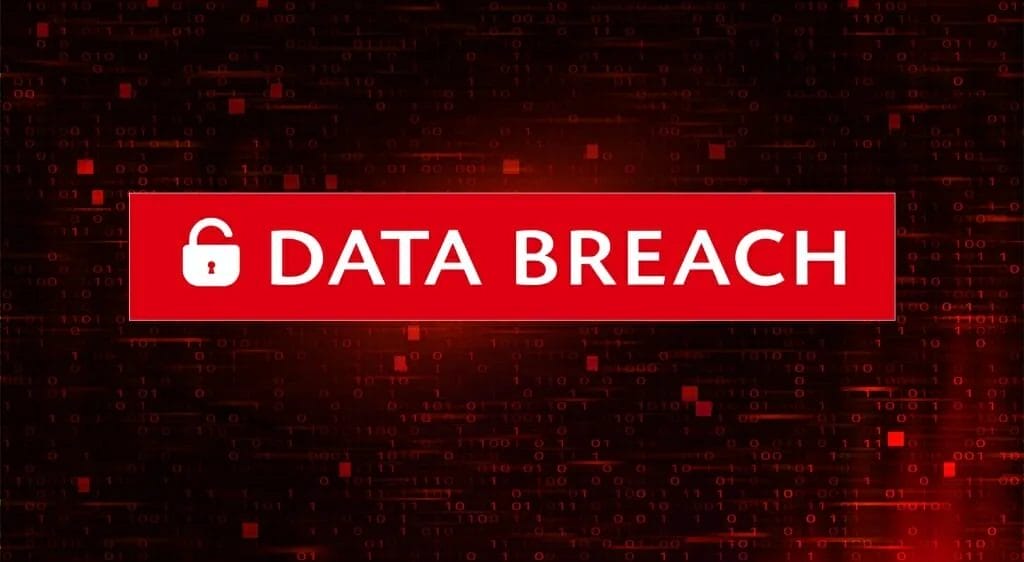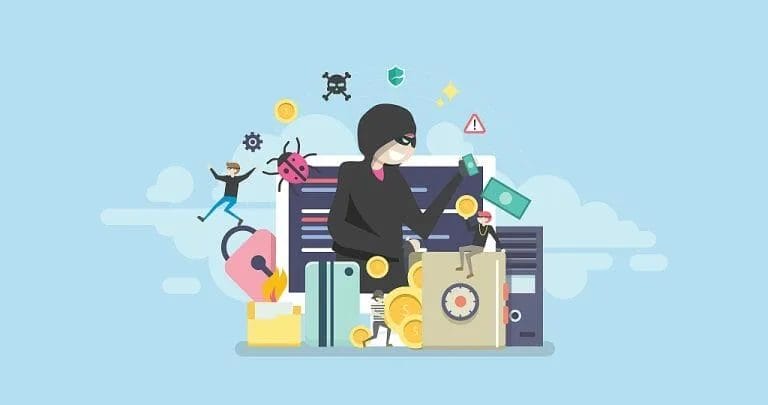
Cyber attacks are becoming more and more common, and businesses of all sizes are at risk. If your business doesn’t have adequate cyber security measures in place, you could be the victim of a devastating attack that could cost you dearly. In this blog post, we’re going to cover everything you need to know about different cyber attack types, from what they are to how to prevent them. We’ll also touch on the consequences of a cyberattack and how to respond if you find yourself the victim of one. Finally, we’ll stress the importance of cyber security and why you need to have cyber liability insurance in place. If you want to protect your business from the growing threat of cyberattacks, keep reading.
What Is A Cyber Attack?
Cyber Attack are defined as attempts to gain unauthorized access to digital information or systems. These attacks can have far-reaching consequences, including financial loss, reputational damage and legal implications. Fortunately, there are steps that businesses of all sizes can take to protect themselves from cyber threats.

The first step is to understand the different types of cyber attacks and their consequences. There are three main types of cyber attacks: data theft, information disruption, and online espionage. Data theft occurs when malicious actors or hacker access personal or confidential information without authorization. Information disruption occurs when cyber attackers disable or interrupt systems or websites, causing lost business revenue or customer satisfaction. Online espionage is the infiltration of an organization’s computer networks by agents from a foreign government in order to steal trade secrets and other sensitive information.
Each type of cyberattack has its own set of consequences for businesses. For example, data theft can lead to financial losses as well as embarrassing publicity for the company involved. Information disruptions can seriously damage a company’s reputation and cause loss in sales and income. Online espionage campaigns can cost companies millions in lost profits and damaging competitive intelligence capabilities.
The next step is to create policies and procedures that will help protect your business from cyberattacks. For example, you should establish a incident response plan and strict protocols for who has access to your network, what kinds of devices are allowed on your network, and how data is stored and transmitted (including through electronic files). You also need to create security measures such as firewalls, intrusion detection systems (IDS), password management software, etc., which will help safeguard your network against unauthorized accesses and any vulnerabilities.
Other Types Of Cyber Attacks
Another type of cyberattack, has its own objectives and goals and you don’t need even need a hacker. For example, denial of service (DoS) attacks are carried out to make a website or online service unavailable. Phishing is an attack where attackers try to trick users into revealing sensitive information such as login credentials or financial information. Ransomware encrypts a victim’s files and demands a ransom be paid in order to decrypt them. SQL injection attacks also inject malicious code into websites to steal data.
Businesses need to be aware of the different types of attacks so they can put in place proper security measures to protect themselves from these threats. For example, they should use anti-virus software and employ a robust defence against phishing and spam emails. They should also keep up-to-date with the latest trends in cyber security and cyber incident by reading industry publications and subscribing to relevant mailing lists e.g. our FB Page: Facebook.com/CyberCover.sg

How To Prevent A Cyber Attack
Preventing a cyber attack is not always easy, but it’s important to take steps to protect yourself and your company. Here are some tips
-Install security software and keep it updated.
-Restrict user access to data and systems.
-Create strong passwords and don’t reuse them.
-Regularly back up data.
-Educate employees about cybersecurity threats and how to protect themselves.
Employees including senior management can be the weakest link but they are the company most valuable asset. Even for small businesses, spend time to enforce best practices and constantly reminding them about information security and the sensitive data in the company like customer data. Give them clear understanding what they can do or cannot do while using the internet in company network e.g. posting in social media so that they will not fall prey to social engineering attacks.
The Consequences Of A Cyber Attack

The potential consequences of a cyberattack can be wide-ranging and far-reaching. In some cases, the consequences may be minor, such as losing data or emails. Other times, the consequences could be more serious, such as financial losses or damage to reputation. Regardless of the severity of the consequences, it is important that businesses are prepared for a cyberattack.
Being prepared for a cyberattack means having an understanding of how a cyberattack works, as well as what steps you need to take in order to protect your business from it. Additionally, it is important to have contingency plans in place in case of a cyberattack happening. This includes things like identifying which systems are most vulnerable to a cyberattack and making sure those systems are protected accordingly.
There are many ways that businesses can protect themselves from a cyberattack. For example, they can use layers of security protocols and deploy antivirus software on all devices used within their business network. They can also engage professionals who can help them navigate through any complex cybersecurity challenges that may arise.
How To Respond To A Cyber Attack
If you have a Cyber Insurance, it’s just a call away. If not, when a cyberattack takes place, it is important to respond quickly in order to limit the damage that has been done. By responding quickly, you can identify which systems are affected and isolate them from the rest of your network. You also need to notify relevant parties so that they can take appropriate action. Finally, you need to investigate the incident and determine what security changes need to be made as a result.
If you are the victim of a cyberattack, it is important to understand your legal rights and what steps you can take to protect yourself. Depending on the severity of the attack, you may have certain legal rights that entitle you to compensation from whoever was responsible for the attack. Inform the local police and law enforcement. If criminal proceedings are started as a result of a cyberattack, it is important to seek legal advice early on in order to ensure that your case is presented in the strongest possible way.
The Importance Of Cyber Security
Cybersecurity is an important topic that everyone should be aware of. Here are six key points to keep in mind when it comes to cyber security:
1. Cybersecurity is about protecting your business from potential cyberattack.
2. There are many different types of cyber-attack, and each can have a different impact on your business.
3. You need to have an understanding of the threats posed to your business, and you need to be prepared to respond quickly and decisively if a cyberattack occurs.
4. The best way to protect yourself from cyber-attack is by installing appropriate cybersecurity measures to identify vulnerabilities, such as firewalls and anti-virus software in the company IT infrastructure such as email servers.
5. It’s also important to have regular backups of all data stored on your computer systems, in case a data breach does occur especially company critical infrastructure.
6. Finally, consider implementing a policy or scheme that rewards employees for taking specific steps towards cybersecurity protection (such as signing up for education programs). By being proactive in this area, you can help safeguard your business against potential cyberattacks.
Why You Need Cyber Insurance

Cyber insurance is a type of insurance that helps protect businesses from cyber attacks and cybercrime. Cyber insurance can help to cover the costs associated with a data breach, such as ransom payments in the event of a ransomware attack, as well as the costs associated with defending against cyberattack and investigating breaches with their forensics experts to find the source of the attack. Cyber insurance can also help to reduce the risk of business bankruptcy in the event of a cyberattack.
Normally insurer will have a cyber incident response plan and their own response team to address to a cyberattack like what CyberCover.sg have. The response team consists of an IT forensics specialist to handle the security incident, a PR (Public Relations) to handle the media and publicity and a lawyer (or legal council) to handle the 3rd party liability.
There are a number of reasons why businesses need cyber cover. First, cyber attacks can lead to data breaches that can cause major damage to a company’s reputation and financial stability. Case in point is the recent case of Optus, owned by Singtel, where hacker compromised 10 million personal data, equivalent to 40% of Australia’s population. Bloomberg News reported that the cost to Singtel of the Optus data breach – including compensation and legal bills – could amount to more than US$400 million (S$573 million). Data breaches also pose a risk to the personal information of employees, which can have serious consequences for their careers.
Source: https://www.straitstimes.com/business/companies-markets/singtels-optus-to-pay-for-new-australian-passports-for-those-affected-by-giant-data-hack
Second, cyberattacks can expose businesses to legal liability if they fail to take reasonable steps to protect themselves from attack. For example, if a business is vulnerable to ransomware attacks, it may be liable if its customers are affected by the malware infection. Cyberattacks can also lead to defamation lawsuits if sensitive information is leaked online without proper protection measures in place. The most recent financial penalty by PDPC:
25 October 2022 : $26,000 Breach of the Protection Obligation by Cognita Asia Holdings
15 September 2022 : $60,000 Breach of the Protection Obligation by MyRepublic
14 July 2022 : $10,000 Breach of the Protection Obligation by Audio House
Latest decision outcome by Singapore Personal Data Protection Commission (PDPC) can be viewed here: PDPC | Commission’s Decisions
Businesses should always investigate potential cyber threats before they become reality and ensure that they have adequate coverage in case of a breach or attack. A reputable insurer will help identify and mitigate risks associated with cybersecurity threats and provide comprehensive coverage for costs related to data breaches and other types of malicious activities.
To Wrap Up
Cyberattacks are becoming more and more common, but there are steps businesses can take to protect themselves. By understanding the different types of attacks and their consequences, businesses can put in place the appropriate security measures to avoid or minimize the damage caused by a cyberattack.






